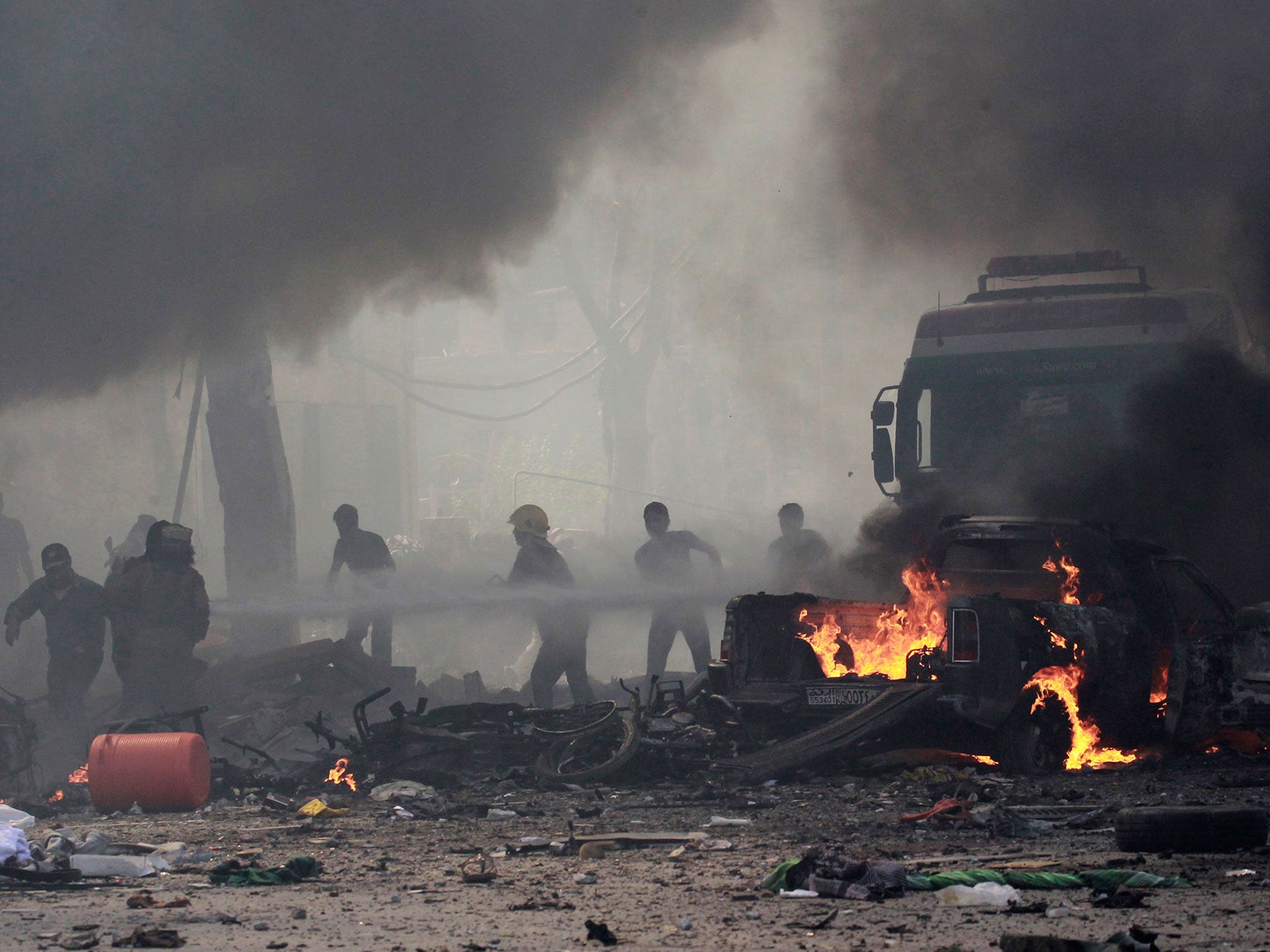Isis and the story of a kidnapping: ‘I didn’t sleep. I was sure they would cut off my head’
Since the kidnapping of a Briton in Syria, hundreds of locals have been held hostage. Isabel Hunter, in Gazientep, meets one of them

“You better pray all night,” said Ali’s captor, as he threw down a prayer rug and handed him a Koran, “You’ll be judged in the morning.”
A day earlier, Ali had been kidnapped by three men dressed like the Taliban with bushy beards and Kalashnikovs a few miles from the spot where the British aid worker David Haines was seized by gunmen in March 2013.
Held and interrogated for three days in the group’s safe house, he barely slept, knowing his life was on the line.
“That night I didn’t sleep for more than an hour – I was sure they would cut off my head,” Ali said, recounting the story of his kidnapping to The Independent from the safety of a Turkish café in the border town of Gazientep, still visibly shaken by his experience six months ago.
For two years, Ali made the trip from Turkey to different towns inside Syria, arranging the delivery of emergency aid such as food parcels, nappies, baby milk, clothes and blankets.
Being questioned by armed groups was part of Ali’s job – there are scores of militias operating in the rebel-held north of Syria and all have an interest in aid distribution.
But sitting blindfolded and squeezed between two dirty bearded men in the back of a blacked-out Range Rover, Ali knew this time was different as he strained to listen for any clues as to where he was being taken. In the rebel-held north, the roads are riddled with checkpoints held by militias competing for control, but as the large car rocked, Ali sensed they were going off-road and undetected.
Ali had been on a routine trip to Aleppo, stopping briefly a few miles after the border in a town square to catch a lift when he was approached by what he believes were Islamic extremists, either from Jabhat al-Nusra or Isis, which calls itself Islamic State. The men wore the Pakistani shalwar kameez but were Syrian.
“Three strangers came straight to me – I think they were waiting for me – the whole thing only took two or three minutes.”
The border-town of Sarmada is well-known as a trading hub specialising in second-hand cars, the central square buzzing with hundreds of salesmen, customers and Free Syria Army soldiers.
During his three-day ordeal Ali endured a combination of threats, taunts and kind words. “Listen my son,” he was told, “they want to kill you, but I’m on your side. Just tell me what you are doing and who you are working for.”
As the interrogation progressed, it was clear that they possessed a lot of information about Ali. “They knew everything about me – my name, my home town, the names of my colleagues, my projects – everything,” Ali said.
Aid workers are forced to maintain good relations with each battalion or slip through unnoticed as any hint of a connection to a Western NGO or the unpopular Syrian opposition can be reason for an interrogation in an anonymous back room.
Ali, who is from a northern Syrian town and is in his mid-twenties, was used to travelling in even the most dangerous areas and enjoyed being able to blend in where others couldn’t.
"When I went to Syria before, I didn’t raise any suspicions as I had a long beard and was young. I could go to the most sensitive areas and they thought I was an activist.”
The world’s deadliest conflict zone has not only become a no-go area for aid workers and journalists; it has also become perilous for many Syrians trying to help their own people.
Bassam al-Kuwatli, managing director of RMTeam, a research company working closely with Syrian and international NGOs, acknowledges the acute problems aid workers face inside Syria, and ones that go beyond kidnapping.
“Obviously the Isis areas are extremely dangerous to work in, but there are also threats from pro-regime militias and bandits who just steal aid. Some of the extremist groups like [al-Qaeda-linked] Jabhat al-Nusra and Ahrar al-Sham, also present a danger as they have a sort of cross-over with Isis,” he told The Independent. In such a fluid battlefield, where alliances change as often as the front lines, NGOs have to work hard to keep aid supplies flowing.
The UN authorised cross-border aid delivery from Turkey to Syria in May this year, and a number of Western NGOs have been distributing emergency aid in Isis-held areas, in spite of the risks.
Since the British aid worker David Haines was kidnapped in March last year, there have been hundreds of cases of Syrians seized by Isis, Assad regime forces, or one of a number of opposition armed groups.
Some have disappeared forever with friends and family trailing hopelessly from one makeshift prison or base to another desperately pleading with self-appointed emirs for their release.
Others, like Ali, are taken for anywhere from a few days to months before being let go without a word. On the morning of the third day they returned his belongings, including all his money, which he was forced to count, to prove nothing had been stolen. Blindfold reapplied, he got into the same black car, and was wordlessly driven back to the border in disbelief.
Join our commenting forum
Join thought-provoking conversations, follow other Independent readers and see their replies
Comments